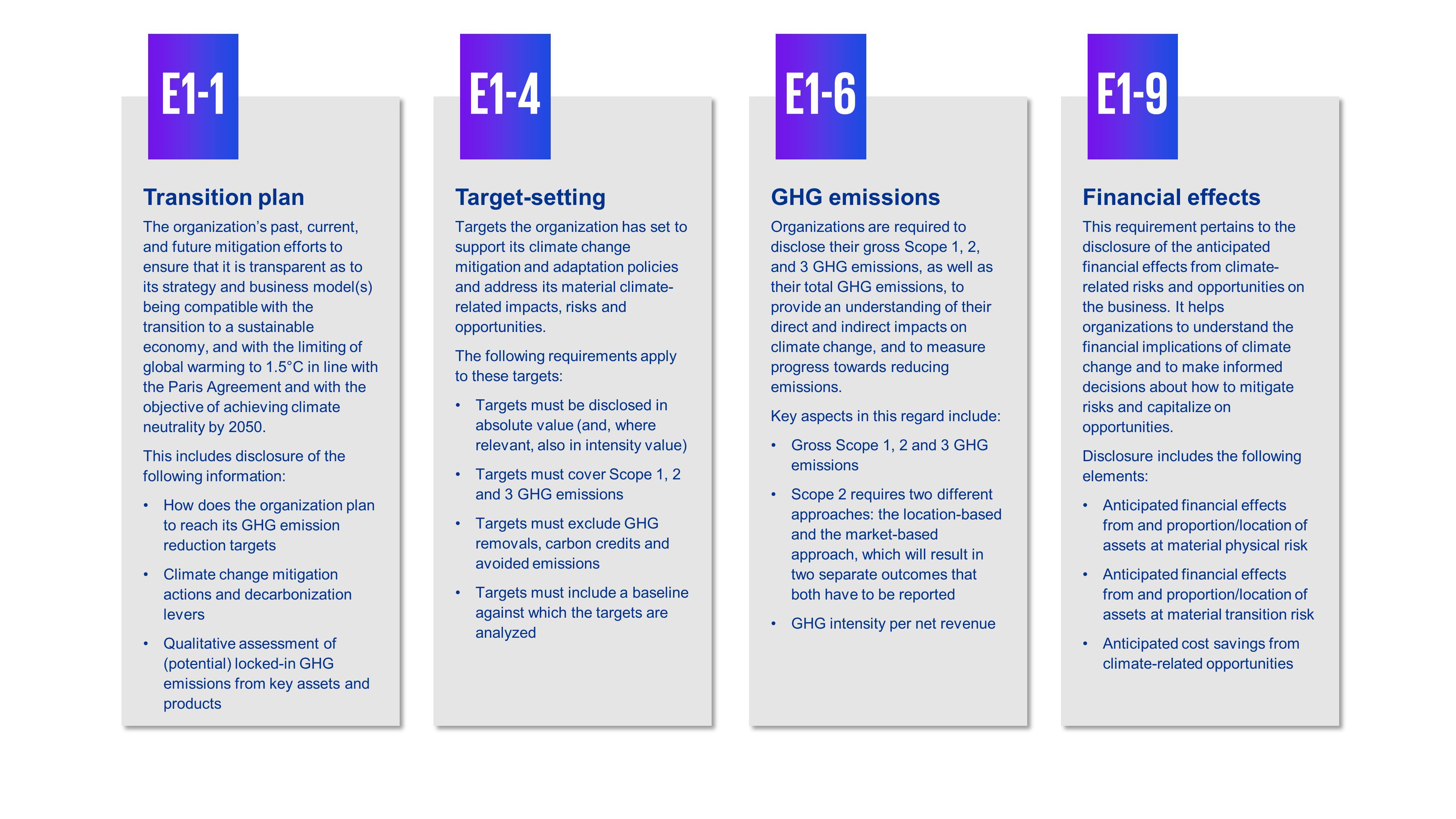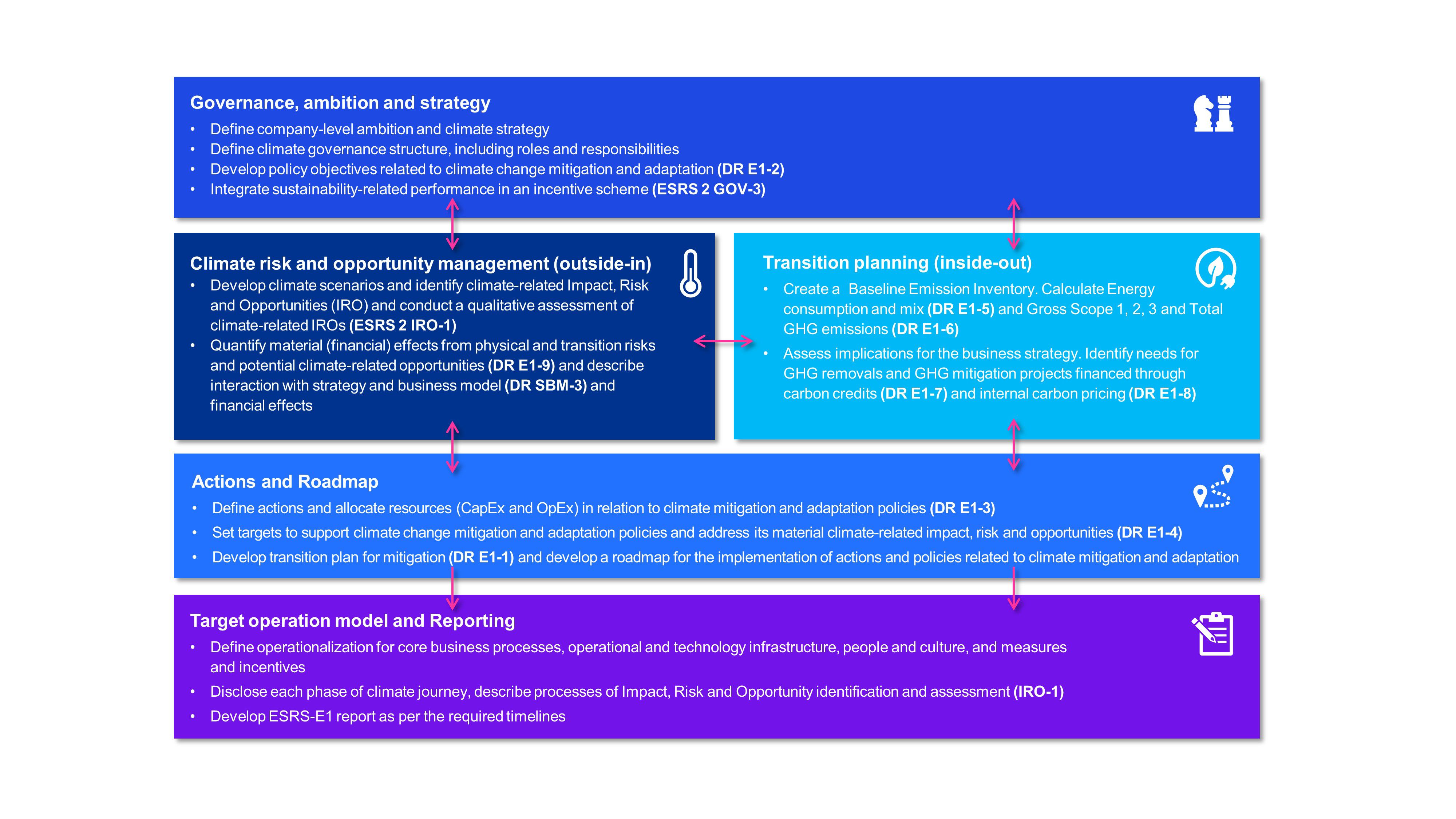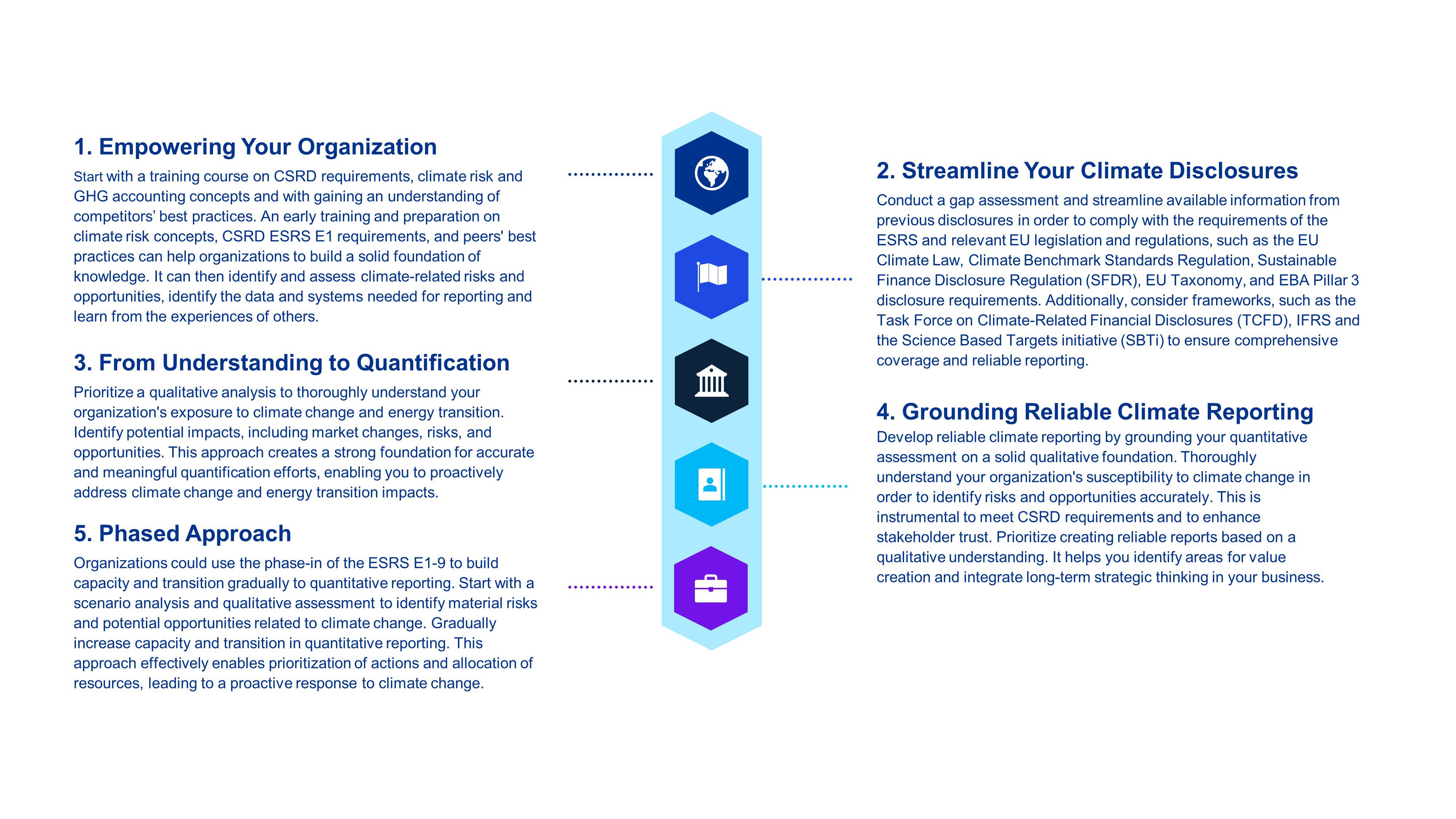Climate change is perceived as the most severe long-term risk in the latest World Economic Forum Global Risks Report (2024) by leaders in academia, business, government, international organizations, and civil society. Organizations have a critical role to play in assessing long-term implications and managing the adverse effects of climate change. Defining risk appetite, building capacity, and reporting on climate-related risks, opportunities, and actions is one way to communicate an organization's responsibility and progress towards addressing this issue.
There are several reasons why it is important for organizations to understand their impact on climate change and to determine whether their mitigation and adaptation efforts are in line with the Paris Agreement's target of limiting the global temperature rise to 1.5°C:
- Understanding long-term climate trends can provide organizations with strategic positioning to leverage opportunities and mitigate risks. By gaining deep insight into the consequences of different climate scenarios, and identifying signposts that indicate the direction of the world, organizations can capitalize on unexpected trends. This strategic approach enables organizations to prepare for different outcomes, such as changing weather patterns, decarbonization of value chains, or both. Climate change is not just a risk; it presents a world of opportunities that businesses can use to gain a competitive edge.
- Meeting regulatory requirements is becoming increasingly crucial in meeting stakeholder expectations and demands for sustainable finance. Investors, customers, employees, and other stakeholders are expecting organizations to provide transparency on their approach to addressing climate change. Reporting on their climate impact and receiving assurance on reported figures is one of the ways that organizations can demonstrate a verified commitment to sustainability and build trust with their stakeholders. Compliance with regulatory requirements is a prerequisite to attract investments, and organizations must disclose information as mandated by regulations. By adhering to climate-related disclosure requirements, organizations can show a proactive approach towards addressing climate change and attracting sustainable finance.
Harnessing ESRS E1 for Strategic Climate Action
The European Sustainability Reporting Standards (ESRS) E1 is a central component of the Corporate Sustainability Reporting Directive (CSRD) and provides a comprehensive framework for organizations to report on their climate mitigation and adaptation efforts. It covers a wide range of topics, including governance, strategy, climate-related risks, and emissions. By reporting in accordance with this standard, organizations can demonstrate their commitment to sustainability, show the alignment of their efforts with the 1.5°C target, and benchmark their performance against others. This helps to promote sustainable development and support the transition to a low-carbon economy.
Here are some specific examples of how the ESRS E1 standard supports organizations in understanding their climate impact and aligning their mitigation efforts with the 1.5°C target:


Click here to view the image at full size
Overall, the ESRS E1 standard provides a comprehensive framework for organizations to report on their climate impact and mitigation efforts in a way that is aligned with the 1.5°C target.
A climate journey roadmap to meet the ESRS E1 disclosure requirements
We have developed a climate framework, which will help organizations to embed climate thinking into their decision-making process and consequently to meet the ESRS E1 disclosure requirements. This roadmap guides organizations towards CSRD-aligned disclosure, enabling them to demonstrate their commitment to sustainability and build trust with their stakeholders.


Click here to view the image at full size
Tips & tricks to start with your climate reporting journey
To get started with your climate reporting journey, we recommend the following actions:


Click here to view the image at full size
Organizations that start an early preparation for quantitative reporting of climate risks and opportunities can benefit from reduced compliance costs, improved reputation and brand image, and competitive advantage. Therefore, it is essential to organize and begin today to proactively respond to the risks and opportunities related to climate change.
If you have any questions on how to make the perfect start with your climate reporting, feel free to get in touch with us!
Featured
We would like to express our sincerest thanks to all the colleagues who contributed their time, expertise, and effort to this article: Vera Moll, Michiel Evers, Marwa Mahmoud, Jelmer van de Ridder and Wietze Kleisterlee.



